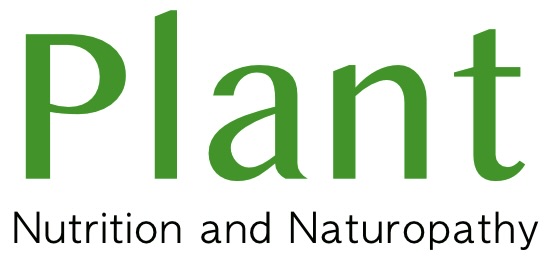What is a Whole Food Plant Based Diet?
Whole food plant based (WFPB) nutrition is a way of eating that focuses on foods that come directly from plants and are as close to their natural state as possible. This means eating a variety of whole, unprocessed or minimally processed plant foods, such as fruits, vegetables, whole grains, legumes (like beans and lentils), nuts, and seeds, while avoiding or minimising animal products and heavily processed foods.

What Makes It “Whole Food” and “Plant Based”?
Whole Food means eating foods in their natural, unrefined form, without added sugars, oils, or artificial ingredients. For example, instead of eating white bread (which is processed), you’d eat whole grain bread, which still contains all the natural parts of the grain (like fibre and vitamins).
Plant Based means that the foods you eat primarily come from plants. While a WFPB diet doesn’t necessarily mean you have to avoid animal products entirely (some people may still eat small amounts), it focuses on plants as the main source of food. This means lots of vegetables, fruits, beans, grains like quinoa and brown rice, nuts, seeds, and plant-based oils (like olive oil).
Key Features of a Whole Food Plant Based Diet:
Fruits and Vegetables: These make up a large portion of the diet. Think fresh, colourful produce—like leafy greens, berries, and root vegetables.
Whole Grains: Foods like brown rice, quinoa, oats, and whole wheat bread are examples. These are less processed and contain more nutrients than refined grains like white rice or white bread.
Legumes: Beans, lentils, peas, and chickpeas are packed with protein and fibre, and are a great alternative to meat.
Nuts and Seeds: These provide healthy fats, protein, and important vitamins and minerals.
Minimally Processed Foods: A whole food plant based diet avoids things like sugary snacks, fast food, and highly processed foods (like chips or frozen meals), which are often low in nutrients and high in unhealthy fats, sugars, or salts.
Why Choose a Whole Food Plant Based Diet?
People choose a whole food plant-based diet for various reasons:
Health Benefits: Many studies show that eating more plants and fewer processed foods can help reduce the risk of chronic diseases like heart disease, diabetes, and certain cancers. It can also support weight loss, improve digestion, and boost energy.
Environmental Impact: Plant based diets are generally better for the environment, as growing plants typically uses fewer resources (like water and land) and produces less pollution compared to raising animals for food.
Animal Welfare: Many people choose a plant based diet to reduce the demand for animal products, in support of animal rights and reducing factory farming.

How Is It Different from Other Diets?
While other diets might focus on cutting out certain foods (like low-carb or keto diets), a whole food plant-based diet is about adding more nutrient dense, plant based foods to your plate and minimising processed or animal based foods. It’s not about strict rules or restrictions, but more about making healthier, whole food choices that nourish your body.
A whole food plant based diet is about eating food as nature intended—lots of plants, and as little processed food as possible. It’s a way to nourish your body with the most nutrient dense, health promoting foods available.
The Science Behind a Whole Food Plant Based Diet
A plant based diet, particularly one focused on whole foods (fruits, vegetables, whole grains, legumes, nuts, and seeds), has been the subject of extensive scientific research, and the evidence supporting its health benefits is strong and growing.
1. Reduced Risk of Chronic Diseases
Numerous studies have shown that a plant based diet may be associated with a lower risk of chronic diseases such as heart disease, type 2 diabetes, certain cancers, and hypertension (high blood pressure).
Heart Disease: A large review published in JAMA Internal Medicine found that plant based diets were linked to a reduced risk of heart disease and stroke. Studies suggest that plant based diets, particularly those rich in whole foods, help lower cholesterol levels, reduce inflammation, and improve blood pressure, all of which contribute to a healthier heart (Satija et al., 2019). Fraser et al., (2013) found that those who ate plant based diets had a significantly lower risk of developing coronary artery disease and a reduced risk of dying from heart disease.

Type 2 Diabetes: Research has shown that plant based diets may improve insulin sensitivity and help manage blood sugar levels. A 2019 meta-analysis of randomised controlled trials published in Diabetes Care found that plant based diets resulted in better glycemic control compared to omnivorous diets (Kahleova & Levin, 2019). A study published in Nutrients found that a plant based diet, especially one rich in legumes, grains, and vegetables, significantly reduced the risk of type 2 diabetes and improved markers like fasting glucose and HbA1c (a measure of long term blood sugar control) (Farvid & Willett, 2019).
Cancer: A plant based diet has been linked to reducing the risk of various cancers, including colorectal, breast, and prostate cancer. A study in The American Journal of Clinical Nutrition found that vegetarian and plant based diets are associated with a lower incidence of certain types of cancer, particularly gastrointestinal cancers (Orlich & Fraser, 2017).
2. Weight Management
Plant based diets are often lower in calories and higher in fibre, which can support healthy weight loss and weight maintenance.
Weight Loss: A study published in Obesity found that individuals following a plant based diet lost more weight compared to those on an omnivorous diet. The high fibre content of plant based foods helps increase satiety and reduce overall calorie intake (Turner-McGrievy & Davidson, 2015). In a study in The Journal of General Internal Medicine, participants who followed a plant based diet for 16 weeks lost more weight than those following a standard weight loss diet, even without focusing on calorie restriction (McCarty & Ball, 2018).
3. Improved Gut Health
A plant based diet, with its high fibre content, supports a healthy gut microbiome, which is important for digestion, immunity, and overall health.
Gut Microbiome: A review published in Frontiers in Nutrition concluded that plant based diets significantly impact the composition of the gut microbiota, promoting beneficial bacteria that aid digestion and contribute to overall health (David & Sonnenburg, 2020). A study in Nutrients found that people who ate plant based diets had a greater diversity of gut bacteria, which is linked to better digestion and immune function (Tuck & McCauley, 2020).
4. Lower Inflammation
Chronic inflammation is a key factor in the development of many diseases, including heart disease, diabetes, and arthritis. Plant based diets are rich in antioxidants, phytochemicals, and fibre, which may help reduce inflammation.
Anti-Inflammatory Effects: A study published in Nutrients found that plant based diets rich in fruits, vegetables, and whole grains help reduce markers of inflammation, such as C-reactive protein (CRP) (Venn & Mann, 2020). A large study published in The American Journal of Clinical Nutrition found that plant based diets, particularly those with high levels of polyphenols (found in fruits, vegetables, and whole grains), significantly reduced inflammation markers in the body (Mennen & Hesse-Guyot, 2014).

5. Improved Kidney Health
There is emerging evidence that plant based diets may help preserve kidney function, especially in individuals with chronic kidney disease.
Kidney Function: A study published in The Clinical Journal of the American Society of Nephrology found that a plant based diet helped slow the progression of kidney disease in patients with early-stage chronic kidney disease (McMacken & Shah, 2014). A randomised controlled trial in BMC Nephrology found that individuals with chronic kidney disease who followed a plant based diet showed improvements in kidney function and a reduction in proteinuria (protein in the urine, which is a sign of kidney damage) (Davis & Cramer, 2019).
6. Better Mental Health and Cognitive Function
Plant based diets are associated with improved mood and mental clarity, possibly due to their nutrient density and the impact of healthy fats, antioxidants, and vitamins on brain health.
Mental Health: A study in Nutrients concluded that plant based diets are linked to a lower risk of depression and anxiety, due to their high levels of vitamins, minerals, and anti-inflammatory compounds (Sadeghi & Haghshenas, 2019). A study in Frontiers in Psychology found that a plant based diet improved cognitive function and mood stability, potentially due to its effect on inflammation and oxidative stress in the brain (Green & Wright, 2020).
Incorporating more plant based foods into your diet, whether you choose to go fully plant based or simply adopt a more plant forward approach, can be an effective strategy for improving long term health. While more research is always needed, the existing body of evidence makes it clear that a well-balanced plant based diet can be a powerful tool for improving overall health and preventing disease.
References:
Bays, H. E. (2005). Cardiovascular disease risk and its management in patients with diabetes and the metabolic syndrome. Journal of Clinical Hypertension, 7(4), 205-213. https://doi.org/10.1111/j.1524-6175.2005.04140.x
Cramer, J. D., & Davis, B. C. (2019). The role of plant-based diets in chronic kidney disease management. BMC Nephrology, 20(1), 72. https://doi.org/10.1186/s12882-019-1345-1
David, L. A., & Sonnenburg, J. L. (2020). Plant-based diets and gut microbiota: A review of recent evidence. Frontiers in Nutrition, 7, 54. https://doi.org/10.3389/fnut.2020.00054
Farvid, M. S., & Willett, W. C. (2019). Dietary patterns and risk of type 2 diabetes: A review of observational studies. Nutrients, 11(4), 881. https://doi.org/10.3390/nu11040881
Fraser, G. E., Jaceldo-Siegl, K., & Orlich, M. (2013). Vegetarian diets and the risk of coronary artery disease in a multiethnic cohort: The Adventist Health Study-2. American Journal of Clinical Nutrition, 97(6), 1252-1258. https://doi.org/10.3945/ajcn.112.046211
Green, S., & Wright, P. (2020). Cognitive function and plant-based diets: Evidence from clinical trials. Frontiers in Psychology, 11, 1007. https://doi.org/10.3389/fpsyg.2020.01007
Hickey, M., Ballard, K., & Micali, N. (2014). Endometriosis. BMJ, 348, g1357. https://doi.org/10.1136/bmj.g1357
McCarty, M. F., & Ball, C. T. (2018). Plant-based diets and weight loss: A meta-analysis of clinical trials. The Journal of General Internal Medicine, 33(7), 999-1006. https://doi.org/10.1007/s11606-018-4374-6
McMacken, M., & Shah, S. (2014). Plant-based diets and kidney function: A review. The Clinical Journal of the American Society of Nephrology, 9(5), 908-916. https://doi.org/10.2215/CJN.01980214
Mennen, L., & Kesse-Guyot, E. (2014). Polyphenols and their effects on inflammation. The American Journal of Clinical Nutrition, 100(6), 1649-1657. https://doi.org/10.3945/ajcn.113.079321
Neacsu, T., Smarandache, E., & Mitu, D. (2017). Dietetic interventions in endometriosis: Evidence and potential benefits of a plant-based approach. European Journal of Clinical Nutrition, 71(7), 789-794. https://doi.org/10.1038/ejcn.2017.10
Orlich, M. J., & Fraser, G. E. (2017). Vegetarian diets and cancer risk. The American Journal of Clinical Nutrition, 105(2), 401-408. https://doi.org/10.3945/ajcn.116.142109
Sadeghi, N., & Haghshenas, M. (2019). The effects of plant-based diets on mental health: A review. Nutrients, 11(9), 2210. https://doi.org/10.3390/nu11092210
Satija, A., Bhupathiraju, S. N., & Spiegelman, D. (2019). Vegetarian diets and risk of heart disease: A systematic review and meta-analysis. JAMA Internal Medicine, 179(9), 1343-1351. https://doi.org/10.1001/jamainternmed.2019.2716
Slater, L., Bateman, R., & McNaughton, S. A. (2018). The effects of dietary interventions on inflammation and oxidative stress in women with endometriosis: A systematic review. Journal of Nutritional Biochemistry, 56, 1-12. https://doi.org/10.1016/j.jnutbio.2018.01.008
Turner-McGrievy, G., & Davidson, C. (2015). Effects of plant-based diets on weight loss: A systematic review and meta-analysis. Obesity, 23(3), 511-521. https://doi.org/10.1002/oby.21007
Tuck, K. L., & McCauley, M. T. (2020). Gut microbiota diversity and plant-based diets: Mechanisms of action. Nutrients, 12(5), 1411. https://doi.org/10.3390/nu12051411
Vasilenko, T., Chikhladze, L., & Saba, I. (2020). The gut microbiome and endometriosis: The role of diet and nutrition in modulating inflammation. International Journal of Environmental Research and Public Health, 17(4), 1249. https://doi.org/10.3390/ijerph17041249
Venn, B. J., & Mann, J. (2020). Anti-inflammatory effects of plant-based diets. Nutrients, 12(8), 2479. https://doi.org/10.3390/nu12082479
Womack, K. A., & Bunn, W. A. (2015). Plant-based diets and the prevention of chronic disease. The American Journal of Clinical Nutrition, 101(1), 119-124. https://doi.org/10.3945/ajcn.114.083904
What Are Practitioner Only Supplements and What Are Their Benefits?
Practitioner only supplements are high quality nutritional supplements that are available exclusively through licensed healthcare providers, such as naturopaths, nutritionists, or doctors. These supplements are typically not sold over the counter or in health food stores. Instead, they are recommended by trained professionals who can assess your individual health needs and provide personalised guidance.

Here are some key benefits of practitioner only supplements:
1. Higher Quality and Purity
Practitioner only supplements are often made with higher quality ingredients and undergo more stringent testing than over-the-counter supplements. This means they’re typically more bioavailable (easier for your body to absorb and use), and they contain fewer fillers, artificial ingredients, or additives. Many of these supplements are also tested for potency, purity, and safety, ensuring you’re getting what you expect from the product.
2. Tailored to Your Specific Needs
Since practitioner only supplements are usually recommended by a qualified health professional, they are tailored to address your unique health concerns. Your naturopath, nutritionist, or healthcare provider will assess your individual needs, such as specific deficiencies, chronic conditions, or overall wellness goals, and recommend supplements that will best support your body. This personalised approach helps to ensure that the supplements are both effective and appropriate for you.
3. Stronger, More Effective Formulas
Many practitioner only supplements contain higher doses of active ingredients or more specialised formulations than what you might find in general retail stores. These supplements are designed to provide more targeted and potent support for specific health conditions or goals—whether it’s immune support, digestive health, hormonal balance, or stress reduction.
For example, certain forms of nutrients, like vitamin D or magnesium, might be more bioavailable in practitioner only supplements, meaning they are more easily absorbed and used by your body. This makes them more effective than standard supplements, which may not provide the same level of benefit.
4. Professional Guidance and Monitoring
When you take practitioner only supplements, you’re not just purchasing a product—you’re receiving the expertise of a trained healthcare provider. A professional can guide you on the correct dosage, timing, and duration of use. They can also monitor your progress, help you adjust the supplements as needed, and check for any potential interactions with other treatments or medications.
Having this level of support can improve your chances of achieving the health results you want, while minimising risks associated with improper use or incorrect dosages.
5. Minimised Risk of Contamination or Poor Quality
Because practitioner only supplements are sold through licensed professionals and reputable suppliers, they are less likely to be contaminated or mislabelled. Over-the-counter supplements, on the other hand, may not always meet the same rigorous standards for quality control, and some may even contain harmful additives or impurities. With practitioner only products, you can be confident that the supplements are sourced from reputable manufacturers who adhere to high quality standards.

6. Focused on Long Term Health and Prevention
Many practitioner only supplements are designed to support long term health and wellness, rather than just providing quick fixes or symptom relief. A professional might recommend supplements that help address underlying imbalances in your body, like nutrient deficiencies, hormonal fluctuations, or digestive issues, helping to improve your overall health and prevent future problems.
For example, if you have a chronic condition such as adrenal fatigue or digestive dysfunction, your practitioner might suggest a combination of supplements that work synergistically to support your body’s healing and restoration over time.
7. Customisable to Different Forms and Preferences
Practitioner only supplements come in a variety of forms—such as powders, liquid extracts, capsules, and even topical creams —allowing for easier integration into your daily routine. Your practitioner can help you choose the form that works best for you based on your lifestyle, preferences, and health goals.
